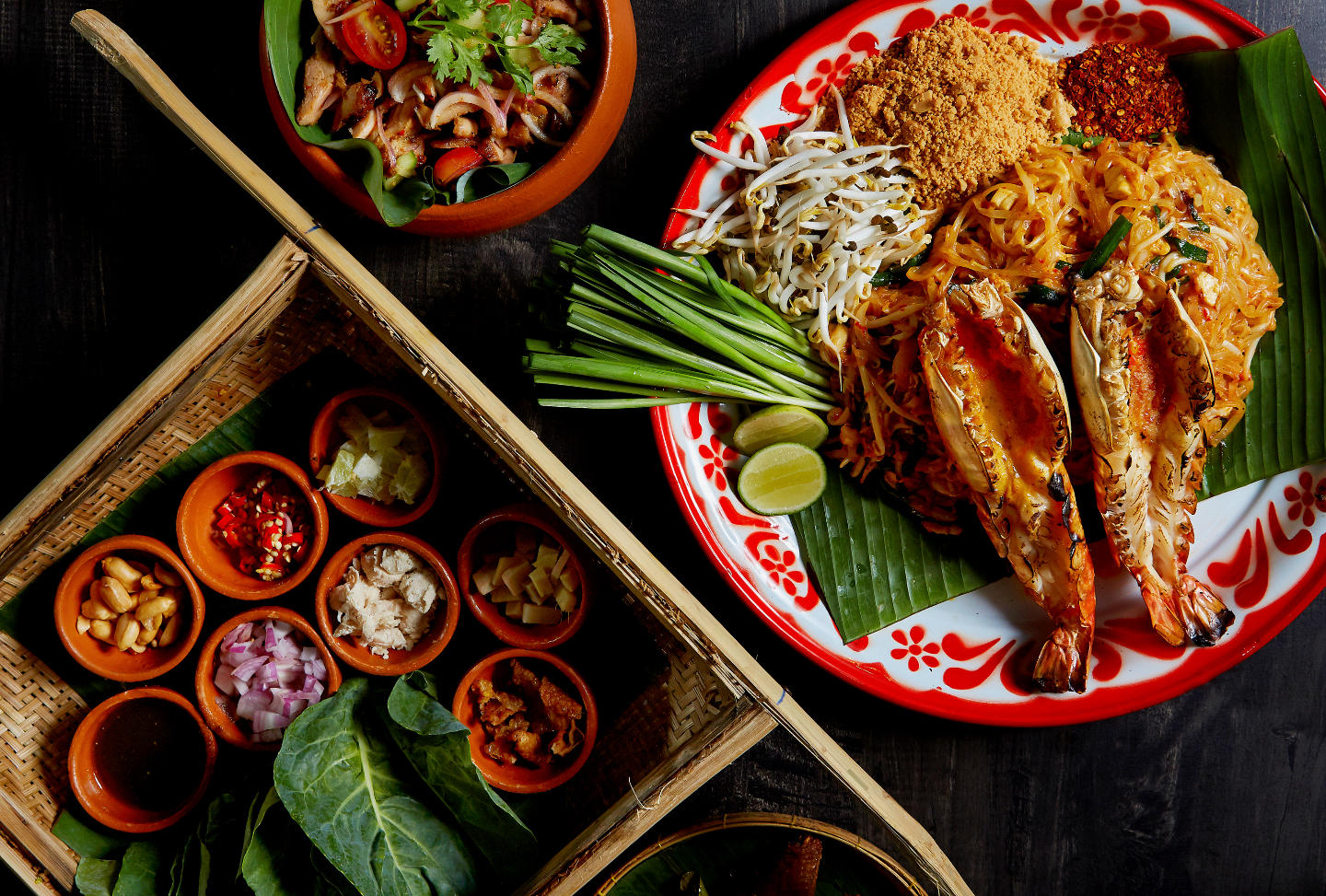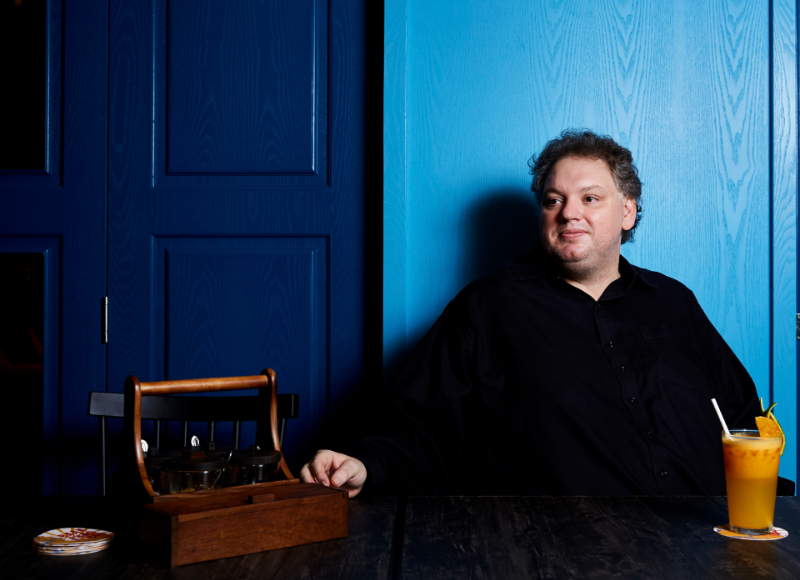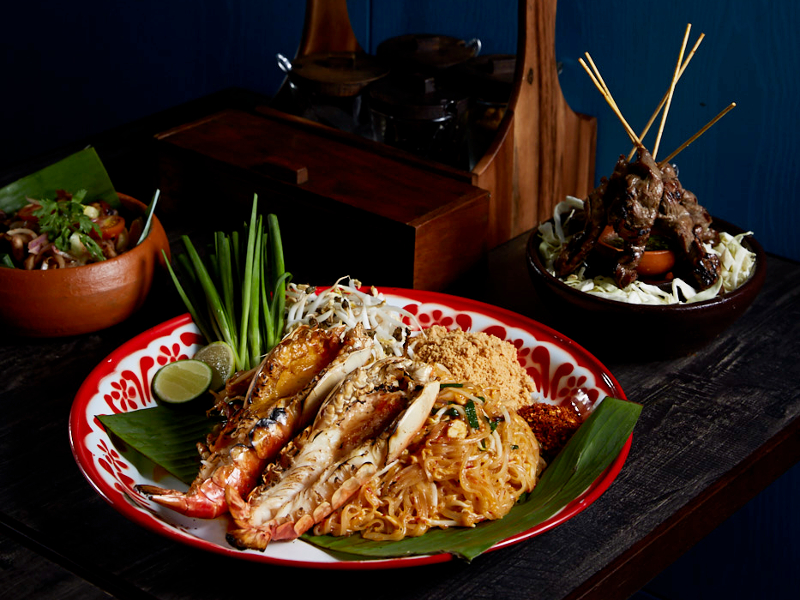
Besides noodles, Baan Phadthai offers a range of traditional favourites, including Mieng Kam (All photos: Soophye)
It may surprise many that the founder of one of Thailand’s most successful pad thai chains is, in fact, French. But that’s Frederic Meyer for you. Nothing he does is ever run-of-the-mill or expected. “My parents love food, my whole family loves food,” says the larger-than-life Frenchman. “My first dining memory was of a Chinese place in Paris where I tried sweet and sour pork for the first time and ate fried rice. That, I can tell you, was when I fell in love with different flavours, with the idea of different cuisines and eating out in restaurants.”
It was while organising an event in business school that Meyer met the CEO of Thailand’s famous Blue Elephant restaurant chain. “He proposed a job in 1990 ... based in Brussels. It was nice but, of course, I wanted to be in Thailand, which happened two years later.”
Thailand proved to be most fortuitous for Meyer in more ways than one. Besides kick-starting what would become a fulfilling and hugely successful career in F&B, the kingdom was also where he met and married Nampu, his Thai wife to whom he sweetly dedicates all his success. And success would be putting it mildly. From Issaya Siamese Club, the first restaurant he opened in 2011 in partnership with long-time friend and celebrated chef Ian Kittichai, Meyer quickly followed up with playful Asian gastrobar Namsaah Bottling Trust, Le Cochon Blanc, Baan Phadthai, the Michelin-starred Saawaan, desserts haven ICI La Patisserie, Casa Sapparod, which specialises in the other local favourite of pineapple fried rice, and northern Thai dining room Kiti Panit in Chiang Mai, housed in an old teakwood building that dates back to the late 1800s. Beyond restaurants, Meyer also runs PR outfit Chili Pop, soft drinks company Bangkok Soda and Le Chedi, an organic farm overseen by famous French grower Benoit Deloffre.
_s1a4688a.jpg

Meyer’s first foray into the Malaysian market was just a few weeks ago, when Baan Phadthai set up at the Connection precinct of Pavilion Kuala Lumpur. The city’s latest pad thai parlour will have you feeling like you are in Bangkok in an instant, with its charming wooden blue shutters, vintage Thai photos and posters adorning the wall and even a table set-up that would take you to the very streets of Charoenkrung.
For those unfamiliar with the ubiquitous street dish’s origins, pad thai is actually a newcomer to the country’s food narrative, the result of a concerted effort by former prime minister Plaek Phibunsongkhram, who wanted the creation of a rice noodle dish that would be inextricably linked to the Thai identity. So in 1938, a new national offering was born, one that symbolised the people’s love for their country and the direct result of Khun Phibun’s concerted culinary nation-building.
Pad thai, which always features rice noodles, peanuts, tamarind and palm sugar, took off from the get-go. This was also part of Khun Phibun’s plan to encourage the consumption of rice noodles as Thailand was undergoing a rice shortage then. Pad thai today is of course found and loved all over the world, a fact that bodes well for Meyer and his burgeoning food empire.
_s1a4743_1.jpg

“It might be a new dish but pad thai — actually, like all noodle dishes — is so easy to eat and offers many interpretations. For me, the most important ingredient is the seafood and at Baan Phadthai, everything is super fresh — only live seafood is used — and our secret 18-ingredient sauce! [It helps] you guys have a soft spot for Thailand too! I myself have a soft spot for Kuala Lumpur as my wife and I had our first date here nine years ago at the Mandarin Oriental KL.” When we expressed amazement at how a first date necessitated the use of a passport, luggage and flight time, he cheekily adds, “You have to date a French man!”
On a more serious tone, however, he notes, “Every restaurant we run places great emphasis on quality and we are very proud Michelin recognises our efforts. It normally takes time for Michelin to award something but we got a Bib Gourmand from the very start itself, when the inaugural Michelin Guide Bangkok launched in 2018. We are very proud about that.”
It has been five years now with Baan Phadthai consistently receiving the Bib Gourmand accolade year upon year while more restaurants from his diverse portfolio are opening up in various international locations. On the local dining scene, Meyer takes a moment to share his observations and how he is completely bullish about its future. “Malaysians love to eat and are just so passionate about food. I also see a big demand for fine dining here. Dewakan was full, full, full when I visited. It’s all about how you sell the story as much as how you sell the food. But what would help Malaysia a lot would be the [presence of the] Michelin Guide, which really boosted gastronomy in Thailand. Even sales from my food import company increased noticeably. Michelin pushes people to want to do better ... to use better products, to improve standards, to have a star. To get a Michelin star is still the dream of almost all young chefs.”
This article first appeared on May 30, 2022 in The Edge Malaysia.


